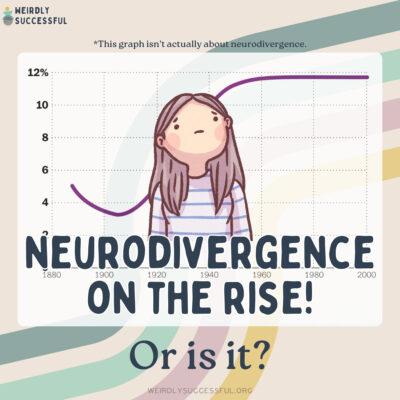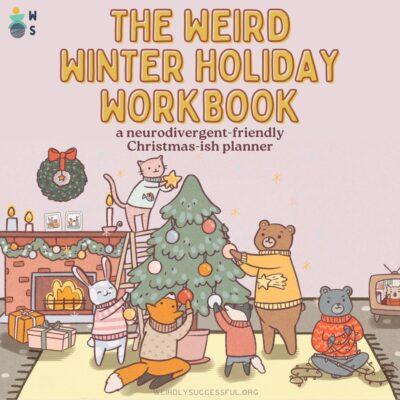“This time, let’s start the website small”, we said.
“Let’s just put up a homepage and a contact”, we said.
“Okay, let’s write three blog posts to start with, but no more!”, we said.
72 published pages later…
One part of my brain is like an ancient trickster god. (A proper one, so think less Tom Hiddleston, more Tom Bombadil.) You never know when they next visit, but when they do, they pop up from behind the hill and show you The Useful Shiny Thing.
🧠 “Look, it’s useful!”
🙅♀️ “I know this trick, brain. It is useful but it’s not what I need to be doing.”
🧠 “Useful! Shiny!”
💁♀️ “But the plan…”, I argue, faintly.
🧠 “USEFUL!!”
🤦♀️ …
The latest Useful Shiny Thing was unknowingly delivered by Adam, who found a way to create a glossary for our website and have definitions automatically underlined in articles.
Next thing I know, it’s 6 hours later, I set up the whole thing and have gone through my research notes from the last two years to create and refine more than 50 (!) definitions for neurodivergence-related terms.
I also spent a lot of time making it friendly and approachable, easy to understand but still accurate, and because I’m me, I also had to make the design signal that this is not a stuffy, dry, boring glossary. I like when things are pretty, you know.
And I already hear some of you shouting from the back rows:
Yes, the term of the day is hyperfocus.
The good thing about hyperfocus is that you can do weeks of work in a day.
The bad thing about hyperfocus is that you can’t make it happen at will. Or turn it off.
And while it’s wonderfully motivating to be in the flow and cruising through tasks like there’s no tomorrow… There is a tomorrow.
And tomorrow comes with massive headaches as my brain kept listing words I could upload and research and cite all. through. the. night.
You see, when something is this exciting to an interest-led brain like mine, it ticks the boxes of:
- I have the skills to do it
- There’s still a challenging element to it
- And it looks like it has a quick turnaround (‘just one more entry’ becomes a million more entries)
It all just makes my brain go wee-oo wee-oo like the red scanning light on K.I.T.T. the talking car. (An age-revealing reference, so feel free to not get it. But if you also watched Knight Rider not for David Hasselhoff’s indubitably gorgeous mane but THE FRICKIN’ TALKING CAR, just know that we’re immediately best friends forever.)
The messy grey area of neurodivergence

Hyperfocus is one of the joys of ADHD, but as evidenced by my woozy head and zombie shuffle the next day, not even hyperfocus is a superpower.
It’s all very messy and complex, and I live for the nuance. I immediately get suspicious when something claims that it’s 100% the best thing ever that will “fix” everything for everyone, or when experiencing a neurodivergent experience is expected to be all suffering, all the time. I say it’s both – living a neurodivergent life can be joyful and it can be a struggle. Sometimes at the same time, which somehow sounds impossible, but it’s not.
Being a neurodivergent adult often means living in this paradoxical area of opposites, where you can figure out plugin settings and CSS codes for something you saw for the first time, but then you have a phone call and you need to recall dates and use not your native language to someone you can’t even see and it exhausts you for hours.
Why knowing the words to use matter
Having words to finally describe these experiences (hyperfocus! executive dysfunction! decision fatigue!) is such a relief, especially when you’ve spent decades thinking either “Isn’t everybody like this?” or “Oh, it must just be me“.
It can be empowering to have the words because they help you name how you feel, what you need, and look for support.
This is why we have the Glossary on the website, and this is the whole reason Weirdly Successful exists. To have the words, create strategies, and find solace and community knowing that we might all be a bit weird but at least we’re not alone.
Grateful to have you on this journey. Now please check out the Glossary and let me know what you think, I am honestly so proud of it. Can’t wait to add 22578 more entries. 🙂 And please leave a comment, as NOT being an AI language model, I actually care about what you write.







 Why self-compassion is more important than self-care
Why self-compassion is more important than self-care
Leave a Reply